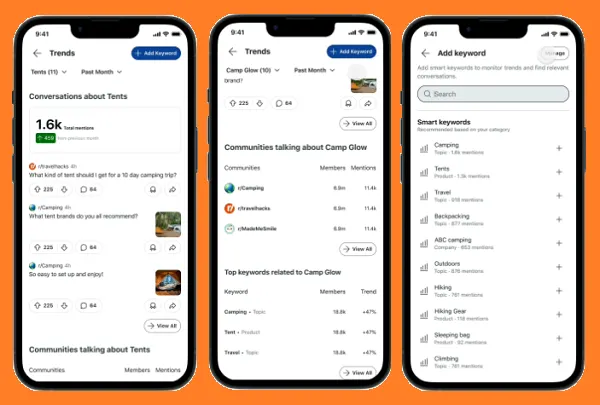How the GSA Schedule Contract Work for Small Businesses
The necessity to incorporate government based contracts for any company, offering goods or services, is a vital part of the business plan. The urge to ensure that a company secures such government contracts, stems from the fact that most...

The necessity to incorporate government based contracts for any company, offering goods or services, is a vital part of the business plan. The urge to ensure that a company secures such government contracts, stems from the fact that most of the orders received from Uncle Sam are usually long-term and prudent, albeit the most influential factor would be the credibility. As the government handles tax payer’s dollars, the remuneration for the goods or services offered would be prompt as per the stipulated time frame, without much hassle.
In order to facilitated conducting business with the government, the GSA (U.S. General Services Administration) was formed in the year 1949, post WW2, by President Truman. Initially, several related departments were brought together to establish a unified portal for procurement and inventory management for the military and emergency rations, albeit the role has eventually evolved into a multidisciplinary functional set up.
GSA is a federal agency and ensures that the process for government procurement is streamlined as well as monitoring the apt spending of tax payer’s dollars. The consumer product/service requirements for the Government are fulfilled by the private sector. GSA acts as a mediator between the Government buyers and the firms offering the necessary products, services or solutions. It, also, acts as the chief body governing government real estate, along with managing the infrastructure. The primary action of the GSA is to hold bids for contracts, through which the least one is chosen. GSA is also responsible for maintaining relationships between all parties involved.
A GSA schedule or contract is business agreement, between the Government and the business entity. The terms are tailored to fit the concerned rules and regulation as well as maintain a fair deal to all parties involved. It may also be referred to as a Federal Supply Schedule (FSS) or a Multiple Awards Schedule (MAS). The vendor can sell to the federal government directly and could supply to the local/state government as well.
Your Eligibility as a Small Business
The eligibility to be qualified as a small business is regulated by the SBA (U.S. Small Business Administration). SBA happens to be completely involved in the aid given to small businesses, ranging from counselling buddingentrepreneurs to raising capital for novice business owners. It was established in 1953, by the federal government, as an independent agency to fortify the macro economy of the nation.
The eligibility criteria are set by the SBA for each section of the NAICS (North American Industry Classification System) code. The size standard depends upon the number of employees as well as the average receipts received annually. The ceiling for the employees and receipts determine whether the firm can be classified as a small business or otherwise. The limitation to be addressed as a small scale industry depends on the industry as per the NAICS code.
Most manufacturing companies employing 500 employees or lesser as well as most non-manufacturing companies with an average annual receipt under USD 7.5 million can qualify to be addressed as a small business. The exceptions based on industry can be checked from Title 13 Part 121.201 of the Code of Federal Regulations (CFR) or the table of small business standards and size standard tool of the SBA.
There are several classifications under the broader term small businesses as well. Some of the classifications include Women-owned small businesses, small disadvantaged businesses, HUBZone small businesses andService-disabled veteran-owned small businesses (SDVOSBs).
GSA schedules issues to such small businesses have to undergo a strict, multidimensional qualification process as well as have the ability to prove that the performance of the product/service holds up to regulations. Some of the GSA schedules are only meant to fulfilled by small businesses while other schedules require larger firms to involve the participation of small businesses in the contract.
Small Businesses Facing Issues Without GSA Schedule
Small businesses without GSA schedules can face difficulties staying afloat during times of uncertainty, such as the COVID-19 pandemic, during which the adverse drawbacks of owning a small business comes it play such as client dependence. Losing the regular clientele, owing to a plethora of reasons ranging from lockdowns to disruption of the supply chain, can have a devastating effect on the survivability of the company. Large scale businesses might be able to stay afloat, due to the sanctions/relief from the government or other resources under the kitty. Small businesses, hence, require, a steady contract based business with a reliable buyer. The Government, as a body, is quite reliable, in terms of contracted businesses. This reliability to fulfil the terms of GSA schedule, including order parameters and payments could be utilized as a solid foundation to improve the scale of the companies involved.
Companies without GSA schedules should be fulfilling requirements and must register through appropriate corridors, in order to vend to the government. Small companies, without GSA schedules, could also take part in subcontracting deals, in alliance with companies with contracts.
Growth Opportunities for Small Businesses Using GSA Schedule
Small business would be benefited by the long term nature of the GSA schedules. The contract received from the GSA usually enables the small business to coordinate with the contracting vehicle for a period of five years. The five-year contract could be renewed for a period of three years post expiry, granted that the company had fulfilled the requirements of the GSA compliance regularly.
The GSA ensures that the acquisition by the federal reserves is void of any hiccups. The streamlined nature of business between all parties involved. Hence, the federal buyer would prefer dealing with small businesses with a GSA schedule for fulfilling the requirements as the process is swift and not complicated. Small businesses can benefit from such streamlined processes by providing a large array of government sectors, thereby, increasing the turnover. GSA does not include a limit on the quantity of goods or services, which helps small businesses to cater to the needs of more divisions.
The lack of negotiations involved aids in the absence of confusion on either side as the GSA schedule dictates the terms and the vendor should confirm prices before the actual selling starts.
Take Benefit of Your Small Business Designation
The scope for GSA schedules for small businesses has been increasing exponentially since the dawn of the century. About 82% of all contacts awarded by the GSA schedules are to small businesses. GSA schedules attributed to Small businesses account for sales in the scale of USD 15 billion. The least GSA sales per business is around the sum of USD 1 million.
The small business based on IT services have been the most active in terms of sales value followed by professional services and medical equipment. The trend to include such businessin the fold seems to have benefited the GSA. There are an estimated 11 million commercial products and services required by the government of all levels (local, state and federal). Small businesses can utilize the limits sets by the GSA to supply the necessary entities for a long term without much hassle.
Conclusion
Hence, the necessity for small businesses to obtain a GSA schedule has been established thoroughly. The long term business nature, which accompanies a GSA schedule, along with the large requirement by the government are a couple of advantages for small businesses to thrive well. The nature of business as well as the compliance to standards are vital to obtain the certification required under the GSA schedule. Therefore, a GSA schedule contract could be useful in propelling the small businesses to new heights.

 Koichiko
Koichiko 
































